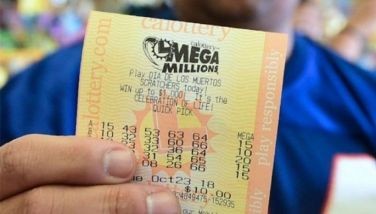Exceptions to the rule
Reviewing the rosters of the 24 teams competing in the FIBA Olympic Qualifying Tournament in four cities this week, you notice there are more and more exceptions to the rule on the eligibility of foreign-born players to represent their countries of choice as locals. While FIBA stipulates that a national team may enlist only one naturalized player, the exceptions allow additional reinforcements even if they received their passports after turning 16. It’s an indication that FIBA is embracing the reality of globalization while providing a way to balance world-wide competition.
FIBA has long recognized jus soli, or land of birth, as the basis of citizenship not jus sanguinis or “right of blood” as the principle of descent. Under Philippine law, jus sanguinis is the determining factor. Under FIBA rules, if a foreign-born player has established extended residence or enrolled in a school or is playing in a country, he may be classified as a local regardless of heritage.
Take the Dominican Republic roster in the OQT. There are four players who were born in the US – Antonio Pena (Coney Island, New York), Eddy Polanco (Washington Heights, New York), Adonys Henriquez (Orlando, Florida) and Luis Santos (Bronx, New York). Did they all receive their Dominican passports before turning 16 to be classified as locals? The four players, by the way, went to US schools.
Ivory Coast is another example. The lineup lists Patrick Tape, born in Charlotte, North Carolina and Deon Thompson, born in Torrance, California. Tape, 36, is a 6-10 center who played at Columbia, Duke and University of San Francisco. He joined the Ivory Coast national team in 2022. Thompson, 35, played in four seasons with the University of North Carolina varsity and suited up on the US U19 and U21 squads. In 2019, the 6-8 power forward was recruited to play for Ivory Coast. Either Tape or Thompson must be classified as a local because two naturalized players on a team are a violation of FIBA rules.
In Croatia’s case, the roster includes the Dreznjak brothers, Mateo and Dario, and Los Angeles Clippers center Ivica Zubac, all born in Bosnia and Herzegovina which has its own national squad. Additionally, Croatia has a naturalized player Jaleen Smith, born in Freeport, Texas. Smith, 29, is a 6-4 guard from the University of New Hampshire and the third naturalized player ever with Croatia after Dontaye Draper and Oliver Lafayette.
Under FIBA rules, a player may represent only one country in his lifetime. But Bahamas’ Eric Gordon is an exception. Gordon, 35, played for the US senior team at the 2010 FIBA World Cup in Turkey then last year, got FIBA’s nod to switch to Bahamas. His mother Denise is from Nassau so there is heritage. But Gordon was born in Indianapolis, Indiana and FIBA recognizes jus soli, not jus sanguinis. At least two other Bahamanian players were born in the US, Franco Miller in Manlua, Ohio and VJ Edgecombe in Brookville, New York. The signs are evident. FIBA is moving on with the times and that’s a welcome development for world basketball.
- Latest





























